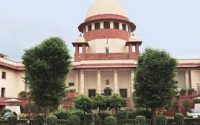$100 Website Offer
Get your personal website + domain for just $100.
Limited Time Offer!
Claim Your Website NowShould Lawyers, Law Firms come under GST? Delhi High Court Asks Government to clarify
Source – barandbench.com
Moreover, do the notifications for collecting such tax – issued under Section 9 (4) of CGST Act, Section 5(4) of the IGST Act and Section 9 (4) of the DGST Act fall foul of the recommendations of the GST Council?
These were the questions posed by a Division Bench of Justices S Muralidhar and Pratibha Singh of the Delhi High Court to the Union and NCT Of Delhi governments on 12 July in a case brought by an Advocate.
The petitioner, JK Mittal , the proprietor of J.K. Mittal & Company- a law firm having its office in Delhi but representing clients in various courts and tribunals across India – contended that the notifications are in violation of the provisions of the CGST Act and DGST Act read with Article 279A of the Constitution of India and has adverse consequences on those practising the legal profession.
By Notification No. 13120 17- B-Central Tax (Rate) dated 28th June, 2017 as well as Notification No. 1312017-State Tax (Rate)- 30 June, a “reverse charge” has been made applicable to recipients of services rendered by all lawyers, law firms and Senior Advocates.
According to the provisions of Article 279A (brought in by the Constitution 101st Amendment Act of 2016), the various rates and slabs for GST under the CGST Act would be made only on the basis of the recommendations of the GST Council. Mittal questioned why he, and others like him providing legal (representational and non-representational) services should be charged GST when the Council had recommended that legal services would be amenable only to a “reverse charge”.
Mittal also contended that a legal practitioner like himself who is already registered under the Finance Act, 1994 (he registered in 2011) would have to be exempted from registration under the GST laws under Section 23 (2) read with Section 22 (2) of the CGST Act and corresponding provisions of the IGST Act and DGST Act.
The Court framed the question – whether legal practitioners providing both representational and non-representational services would be required to register under the respective GST Acts if they were already previously registered under the Finance Act?
Mittal stated that he does not wish to be registered, because such registration would make him liable to pay GST on a reverse charge basis when he is already doing so by virtue of being registered under the Finance Act.
The Court held that there was no clarity on whether all legal services provided by legal practitioners and firms would be governed by the reverse charge mechanism. If in fact all legal services are to be governed by the reverse charge mechanism than there would be no purpose in requiring legal practitioners and law firms to compulsorily get registered under the CGST, IGST and DGST Acts.
Asking the authorities to clarify, the Court held that till such clarification is provided to the Court, no coercive action be taken against lawyers or law-firms for not complying with any legal requirement under the CGST Act, the IGST Act or the DGST Act.
Therefore, till final hearing of this case, there will be no GST registration for lawyers and law firms for any legal service.
The Court has directed that the case be next listed on July 18, 2017.



